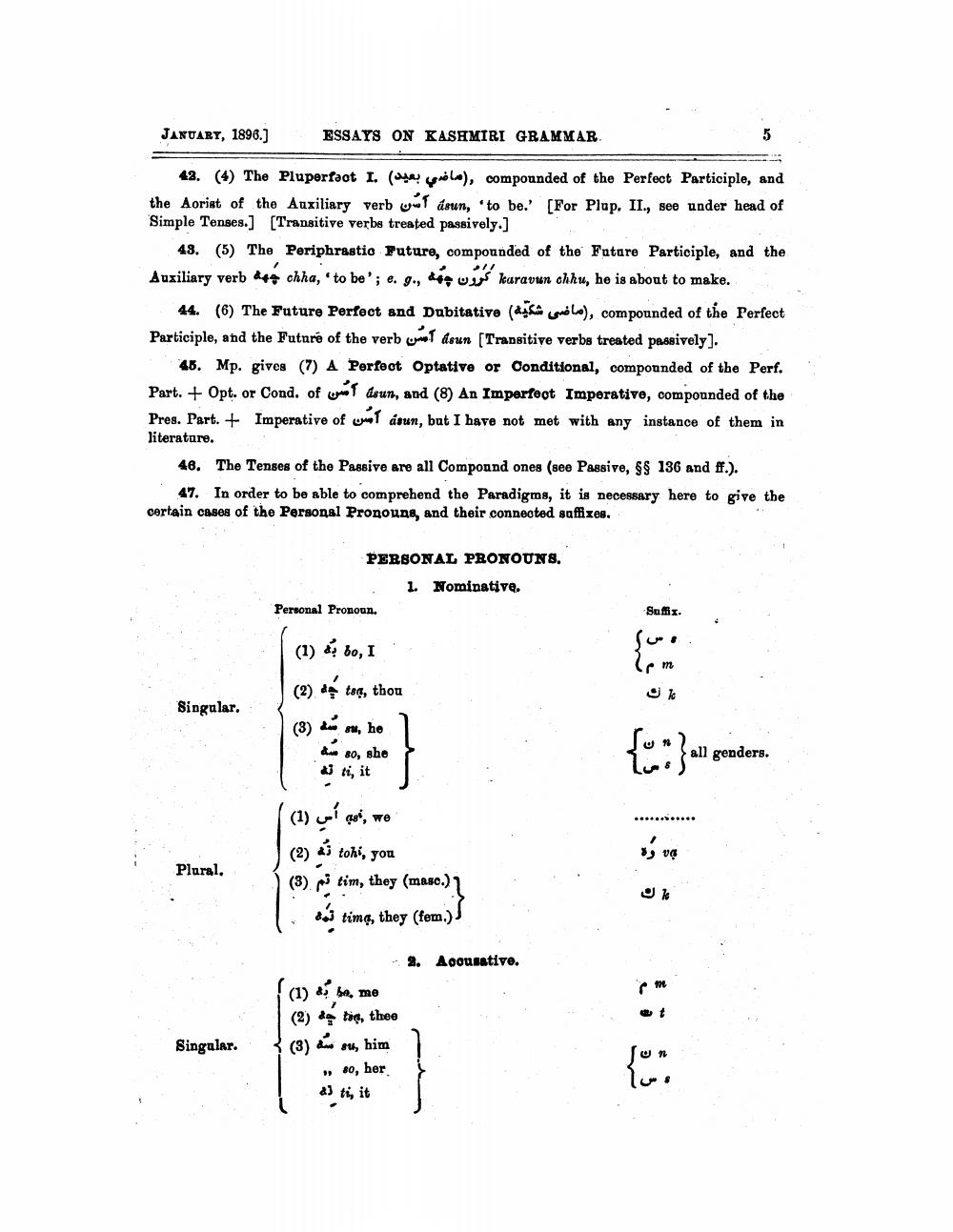Book Title: Indian Antiquary Vol 25 Author(s): Richard Carnac Temple Publisher: Swati Publications View full book textPage 9
________________ JANUARY, 1896.) ESSAYS ON KASHMIRI GRAMMAR 42. (4) The Pluperfast I. ( Solo), compounded of the Perfect Participle, and the Aorist of the Auxiliary verb wwt ásun, 'to be.' [For Plap. II., see under head of Simple Tenses.] [Transitive verbs treated passively.] 43. (5) The Periphrastio Future, compounded of the Future Participle, and the Auxiliary verb 444 chha,' to be'; e. g., 4 wes karavun chhu, he is about to make. 44. (6) The Future Perfect and Dubitative (as con lo), compounded of the Perfect Participle, and the Future of the verb amor ásun [Transitive verbe treated passively). 45. Mp. gives (7) A Perfect Optative or Conditional, componnded of the Perf. Part. + Opt. or Cond. of emos asun, and (8) An Imperfect Imperative, compounded of the Pres. Part. + Imperative of war ásun, but I have not met with any instance of them in literatare. 46. The Tenses of the Passive are all Componnd ones (see Passive, &$ 136 and ff.). 47. In order to be able to comprehend the Paradigms, it is necessary here to give the certain cases of the Personal Pronoung, and their connected saffixes. PERSONAL PRONOUNS. 1. Nominative. Personal Pronoun. Suis. Singular. all genders. (1) ás do, I (2) of too, thou (3) , ho 1 dhe 80, she l aj ti, it 1 (1) vl part, we J (2) aš toki, you (3) p tim, they (masc.) / l o time, they (fem.) Plural. 2. Acousative. f (1) or be me de too, thee }(3) é ou, him , o, her Singular. ?Page Navigation
1 ... 7 8 9 10 11 12 13 14 15 16 17 18 19 20 21 22 23 24 25 26 27 28 29 30 31 32 33 34 35 36 37 38 39 40 41 42 43 44 45 46 47 48 49 50 51 52 53 54 55 56 57 58 59 60 61 62 63 64 65 66 67 68 69 70 71 72 73 74 75 76 77 78 79 80 81 82 83 84 85 86 87 88 89 90 91 92 ... 366
